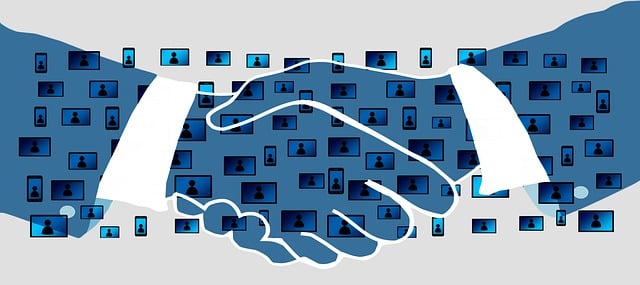Audience segmentation and marketing automation for leads empower businesses to personalize marketing efforts based on customer traits and behaviors, enhancing engagement. Automation streamlines tasks, enables targeted communication via channels like email and WhatsApp, and optimizes lead nurturing processes using AI chatbots. Defining customer personas guides messaging across the buyer's journey, with automated campaigns delivering relevant content at pivotal stages. Marketing analytics refine strategies, increasing conversion rates and fostering loyal customer relationships through tailored interactions.
In today’s digital landscape, effective audience segmentation is key to successful marketing. Marketing automation for leads offers a powerful solution, enabling businesses to personalize their strategies and engage potential customers at every stage of the buying journey. This article delves into the intricacies of audience segmentation, highlighting its benefits through automated lead nurturing campaigns. We’ll explore how defining customer personas and understanding buying stages can revolutionize your marketing approach, ensuring targeted and meaningful interactions with your audience.
- Understanding Audience Segmentation
- Benefits of Marketing Automation for Leads
- Defining Customer Personas and Buying Stages
- Implementing Automated Lead Nurturing Campaigns
Understanding Audience Segmentation

Audience segmentation is a powerful strategy that involves dividing your potential customers into distinct groups based on shared characteristics. By understanding the diverse needs and behaviors of each segment, businesses can tailor their marketing efforts to create more personalized and effective campaigns. This level of customization is essential for engaging leads, as it demonstrates an understanding of their unique circumstances, leading to higher conversion rates.
Marketing automation for leads plays a pivotal role in this process by providing the tools to collect, analyze, and utilize customer data efficiently. Automation enables businesses to categorize prospects into segments through various criteria such as demographics, purchasing history, website interactions, or even specific interests. This allows for targeted communication via channels like email marketing and whatsapp marketing, ensuring that each lead receives relevant and timely information, thereby enhancing overall marketing effectiveness.
Benefits of Marketing Automation for Leads

Marketing automation for leads offers a multitude of benefits that transform how businesses approach customer acquisition and retention. By leveraging intelligent systems, companies can automate repetitive tasks, allowing marketing teams to focus on strategic initiatives. This technology enables personalized interactions with potential customers, enhancing engagement and increasing conversion rates. With automated workflows, businesses can deliver targeted content at just the right moment in a prospect’s buyer’s journey.
Moreover, marketing automation streamlines lead nurturing processes, ensuring that every contact point is an opportunity for education, enticement, or conversion. AI chatbots, integrated into these systems, provide instant customer support and gather valuable insights, further refining marketing strategies. Email marketing, powered by automation, becomes more effective due to its ability to segment audiences precisely, resulting in higher open rates and click-throughs. This level of customization and efficiency is a game-changer for businesses aiming to stay competitive in today’s digital landscape.
Defining Customer Personas and Buying Stages

Defining customer personas is a vital step in any successful marketing strategy, especially when leveraging marketing automation for leads. Personas represent fictional characters created to embody your ideal customers’ traits, behaviors, and motivations. By understanding who your target audience members are, you can tailor your marketing messages to resonate with them at each stage of their buyer’s journey. This involves considering factors like demographics, psychographics, pain points, goals, and buying preferences. For instance, a software company might create personas for tech-savvy entrepreneurs, busy executives, or IT decision-makers, each requiring distinct communication approaches.
Knowing your customers’ buying stages is equally crucial. The buyer’s journey often encompasses several stages, from awareness to consideration, purchase, and post-purchase. Marketing automation platforms allow you to segment leads based on these stages, enabling personalized interactions via various channels like email, social media, or even text message marketing (e.g., WhatsApp) to drive them through the funnel. Additionally, reputation management plays a significant role; positive customer experiences and reviews can significantly influence potential buyers’ decisions at each stage.
Implementing Automated Lead Nurturing Campaigns

Implementing automated lead nurturing campaigns is a powerful strategy within marketing automation for leads. By leveraging technology, businesses can deliver personalized content and offers to prospective customers at just the right time. These campaigns are designed to nurture leads through their buyer’s journey, educating and engaging them with relevant information. Marketing analytics play a crucial role here as it helps in understanding lead behavior and preferences, allowing marketers to refine their approach.
Through automated lead nurturing, businesses can send targeted messages via email or even missed call text-back systems. For instance, sending a series of educational emails after a potential customer downloads an e-book or offering a prompt response to a missed call with a relevant question or solution. This strategy not only improves engagement but also increases the likelihood of converting leads into loyal customers. Marketing automation ensures that every lead receives tailored interaction, enhancing the overall marketing effectiveness.
Marketing automation for leads is a powerful tool that, when combined with effective audience segmentation, can transform how businesses engage with their customers. By understanding customer personas and their buying stages, companies can tailor automated lead nurturing campaigns to nurture prospects through the sales funnel efficiently. This strategic approach not only enhances lead conversion rates but also fosters stronger, more meaningful relationships with clients, ultimately driving business growth and success.
